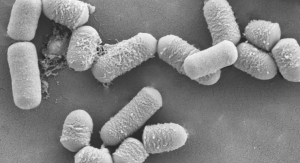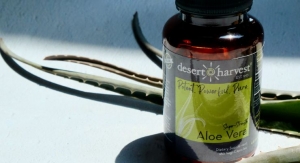09.20.22
A prebiotic ingredient marketed by Taiyo as Sunfiber was linked to significant reductions in the duration and incidence of self-reported cold-like symptoms in a study recently published in European Review for Medical and Pharmacological Sciences. The study provides evidence that supplementation with the prebiotic to support a healthy gut microbiome can confer benefits to immune function. Sunfiber is partially hydrolyzed guar gum, a galactomannan-based soluble dietary fiber made from guar beans.
“While there are several exciting ingredient advances in the immune category, including water-soluble SunActive IsoQ for higher quercetin bioavailability, it is also important to continually study the proven ingredients such as prebiotic Sunfiber,” said Derek Timm, PhD, RDN, functional ingredient technology expert with Taiyo. “This new study connects the dots between regularity, postbiotics, and immune support.
The study, which was placebo-controlled, double-blind, and randomized, was a parallel-group comparative study which was conducted over a 12-week period. 96 healthy adults received either an immune product containing 5.2 grams of Sunfiber or a placebo. Participants kept diaries of their cold-like symptoms. The levels of short-chain fatty acids in their stool and blood immune markers were evaluated at baseline, week six, and week 12.
The Sunfiber group had a significantly greater number of symptom-free days than the placebo group, the authors reported.
“The rate of no symptoms was high among both groups,” they wrote. “However, the Sunfiber group had more healthy, symptom-free days than the placebo, which is meaningful to most people. We all want more days where we feel good and are not dragged down by symptoms,” said Timm.
There were also significant differences between the Sunfiber group and placebo groups when it came to the symptoms they commonly experienced. “Sunfiber significantly reduced most general symptoms including runny nose, plugged nose, general malaise, arthralgia, and chills,” the authors wrote. “Additionally, Sunfiber reduced the number of days thee participants experienced constipation or diarrhea. The overlap of improved digestive and cold-like symptoms demonstrates the connection between gut and immune health.”
Notably, there were steady increases in all short-chain fatty acids, and butyric acid levels were significantly higher in the Sunfiber group compared to those who took the placebo. Short-chain fatty acids are produced by beneficial bacteria in the gut and are linked to a number of health benefits.
“Since 70 percent of the immune system is at the gut level, these increases speak to the potential mechanism of action,” Timm said. “We observed some improvements in immunological markers, however, most did not reach statistical significance. Despite this, we do see an association between cold symptoms, short-chain fatty acid levels, and immune markers. They may help explain the decrease in cold symptoms within the Sunfiber group.”
“While there are several exciting ingredient advances in the immune category, including water-soluble SunActive IsoQ for higher quercetin bioavailability, it is also important to continually study the proven ingredients such as prebiotic Sunfiber,” said Derek Timm, PhD, RDN, functional ingredient technology expert with Taiyo. “This new study connects the dots between regularity, postbiotics, and immune support.
The study, which was placebo-controlled, double-blind, and randomized, was a parallel-group comparative study which was conducted over a 12-week period. 96 healthy adults received either an immune product containing 5.2 grams of Sunfiber or a placebo. Participants kept diaries of their cold-like symptoms. The levels of short-chain fatty acids in their stool and blood immune markers were evaluated at baseline, week six, and week 12.
The Sunfiber group had a significantly greater number of symptom-free days than the placebo group, the authors reported.
“The rate of no symptoms was high among both groups,” they wrote. “However, the Sunfiber group had more healthy, symptom-free days than the placebo, which is meaningful to most people. We all want more days where we feel good and are not dragged down by symptoms,” said Timm.
There were also significant differences between the Sunfiber group and placebo groups when it came to the symptoms they commonly experienced. “Sunfiber significantly reduced most general symptoms including runny nose, plugged nose, general malaise, arthralgia, and chills,” the authors wrote. “Additionally, Sunfiber reduced the number of days thee participants experienced constipation or diarrhea. The overlap of improved digestive and cold-like symptoms demonstrates the connection between gut and immune health.”
Notably, there were steady increases in all short-chain fatty acids, and butyric acid levels were significantly higher in the Sunfiber group compared to those who took the placebo. Short-chain fatty acids are produced by beneficial bacteria in the gut and are linked to a number of health benefits.
“Since 70 percent of the immune system is at the gut level, these increases speak to the potential mechanism of action,” Timm said. “We observed some improvements in immunological markers, however, most did not reach statistical significance. Despite this, we do see an association between cold symptoms, short-chain fatty acid levels, and immune markers. They may help explain the decrease in cold symptoms within the Sunfiber group.”




























